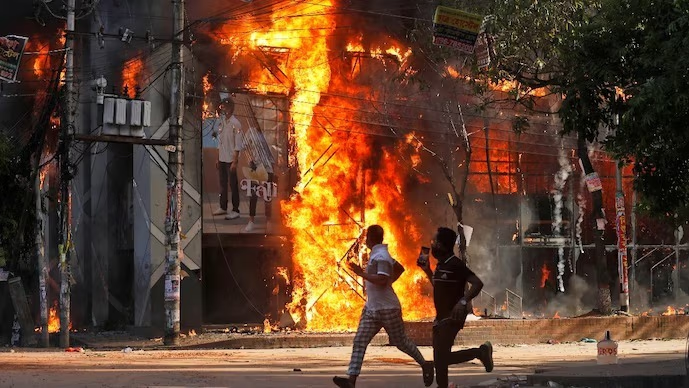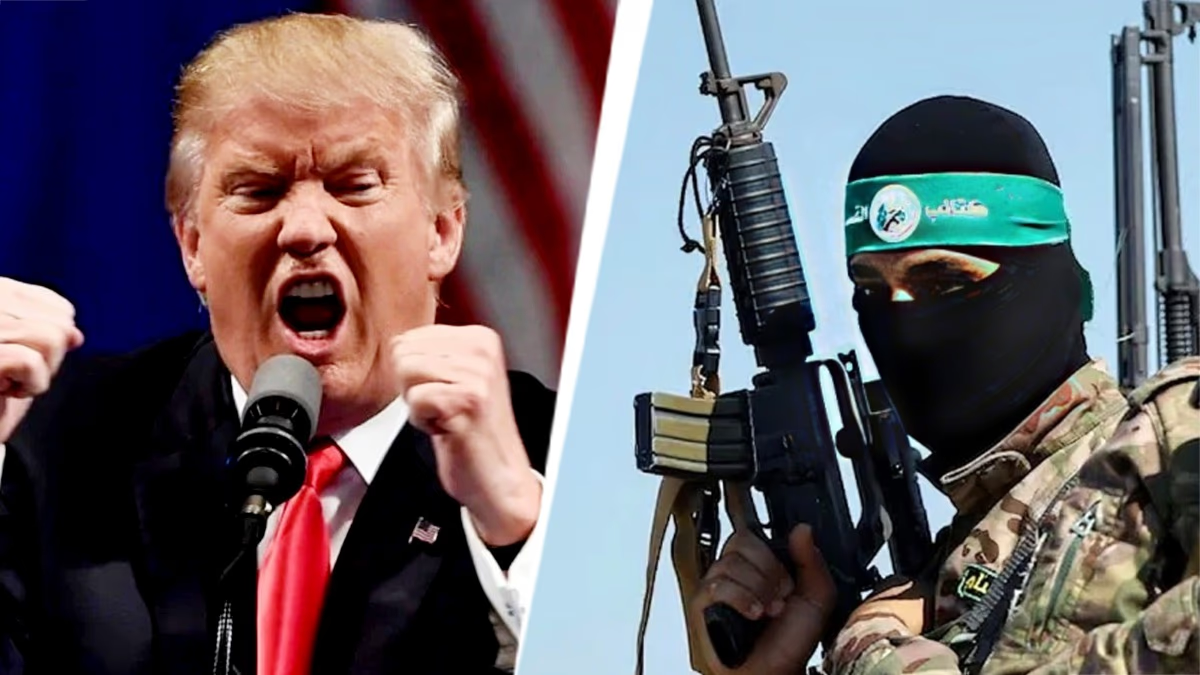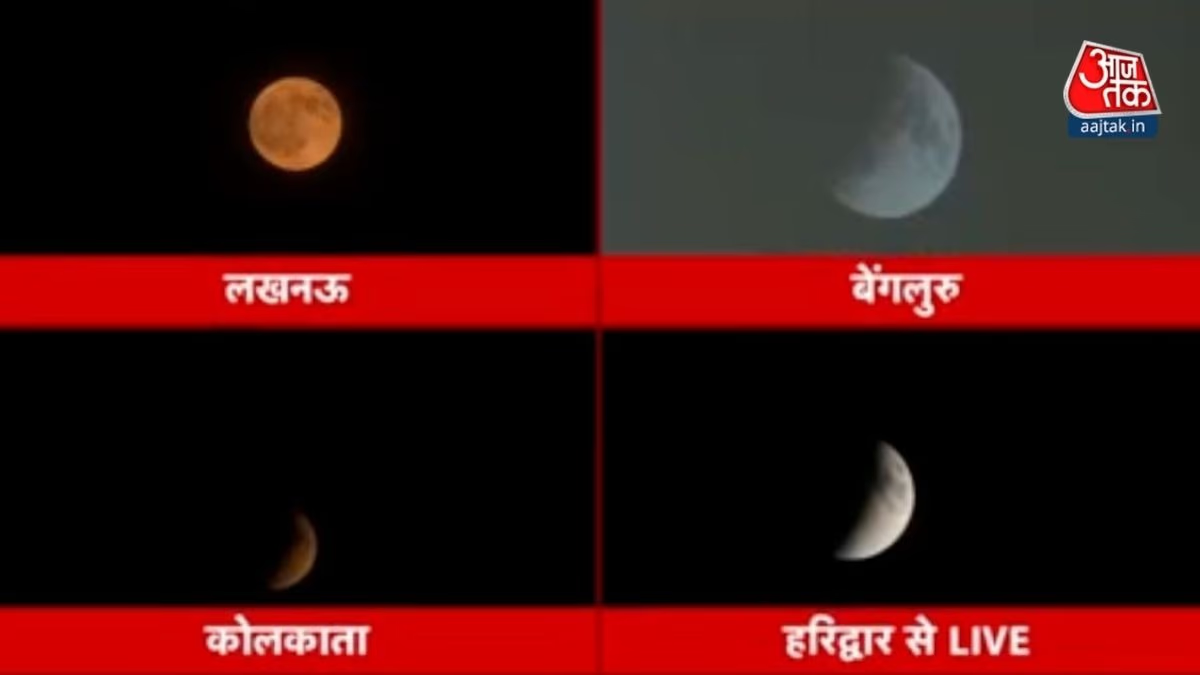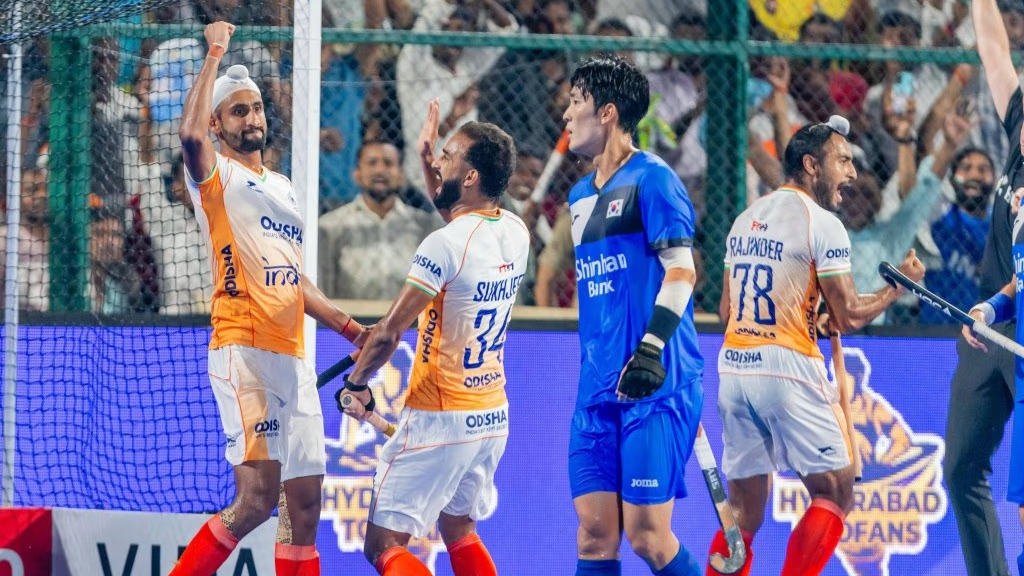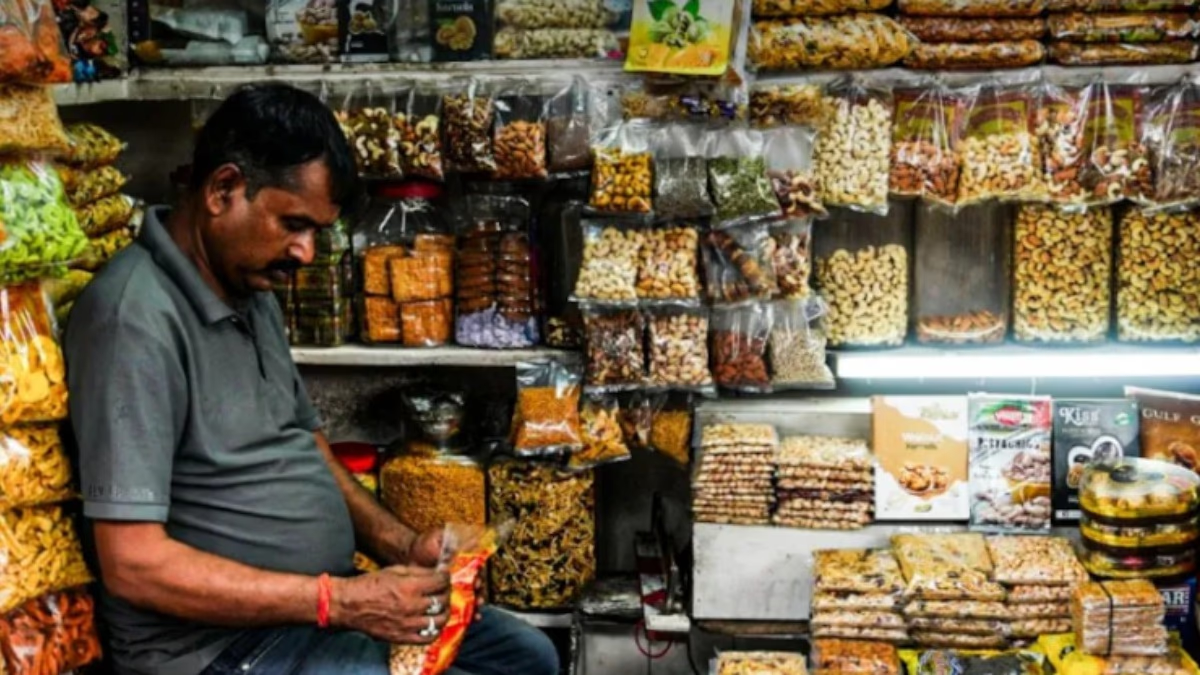Violence has once again erupted in the neighboring country of Bangladesh. According to media reports, over 72 people have lost their lives, and hundreds have been injured in the clashes on Sunday. The confrontation involved student protesters, police, and members of the ruling party.
Police used tear gas and stun grenades to scatter thousands of demonstrators demanding the resignation of Prime Minister Sheikh Hasina. The government announced an indefinite nationwide curfew starting at 6 PM on Sunday, a move it's taking for the first time since the protests began last month.
At Least 200 Dead Nationwide
For over a month, students in Bangladesh have been protesting against the quota system for government jobs. This movement has previously sparked violence, and so far, at least 200 people have lost their lives across the country. The epicenter of the protests has been the capital, Dhaka.
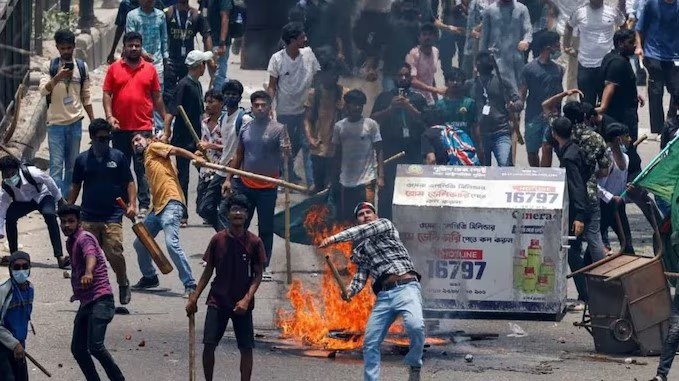
Source: aajtak
Major Roads Blocked
According to an AFP report, on Sunday, a crowd of protesters carrying sticks gathered. When they reached Shahbag Square in central Dhaka, they clashed severely with the police. Similar confrontations also occurred in several other key locations and major cities. Protesters blocked major highways, and supporters of the ruling Awami League also faced off against them.
Calls for Boycotting Taxes and Bills
Besides students, the demonstrators included factions supported by the main opposition Bangladesh Nationalist Party. They urged people not to pay taxes and bills and called for a strike on Sunday. Protesters attacked open offices and establishments, including a hospital in Dhaka's Shahbag area and Bangabandhu Sheikh Mujib Medical University. Eyewitnesses reported that crude bombs exploded in Dhaka’s Uttara area, and gunshots were heard.
Violence in July
According to the news agency AP, several vehicles were set on fire. A police officer in Munshiganj District, Dhaka, told the media, “The whole city has turned into a battlefield.” Protest leaders had called for demonstrators to arm themselves with bamboo sticks, as police had brutally crushed the previous wave of protests in July.
Bangladeshi media reported deaths in 11 districts, including Bogura, Magura, Rangpur, and Sirajganj, where members of the Awami League and the Bangladesh Nationalist Party clashed directly.
Last month, protests began over a quota system that reserved 30 percent of government jobs for the families of 1971 Independence War veterans. As the protests intensified, the Supreme Court reduced the quota to 5 percent, of which 3 percent would go to the veterans' relatives. However, protests continued with demonstrators demanding accountability for alleged excessive use of force by the government to quell unrest.
Curfew Announced
Prime Minister Hasina and her party seem to reject the protesters' pressure. The government blames opposition parties and the now-banned right-wing Jamaat-e-Islami party and their student wings for inciting the violence. Following a national security meeting, Hasina accused, “Those who are protesting on the streets now are not students but terrorists who want to destabilize the country.” She urged citizens to suppress these so-called terrorists firmly.
India Issues Travel Advisory for Bangladesh
Amid the ongoing violence, the Indian government has issued a travel advisory for Indian nationals against visiting the neighboring country. All Indian citizens currently in Bangladesh are advised to exercise extreme caution, restrict their activities, and stay in contact with the Indian High Commission in Dhaka through emergency phone numbers. Additionally, a helpline number has been released.
+8801958383679+8801958383680+8801937400591
